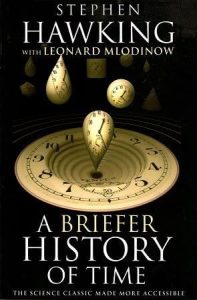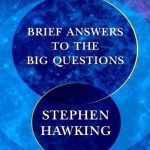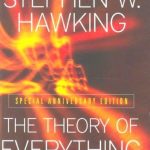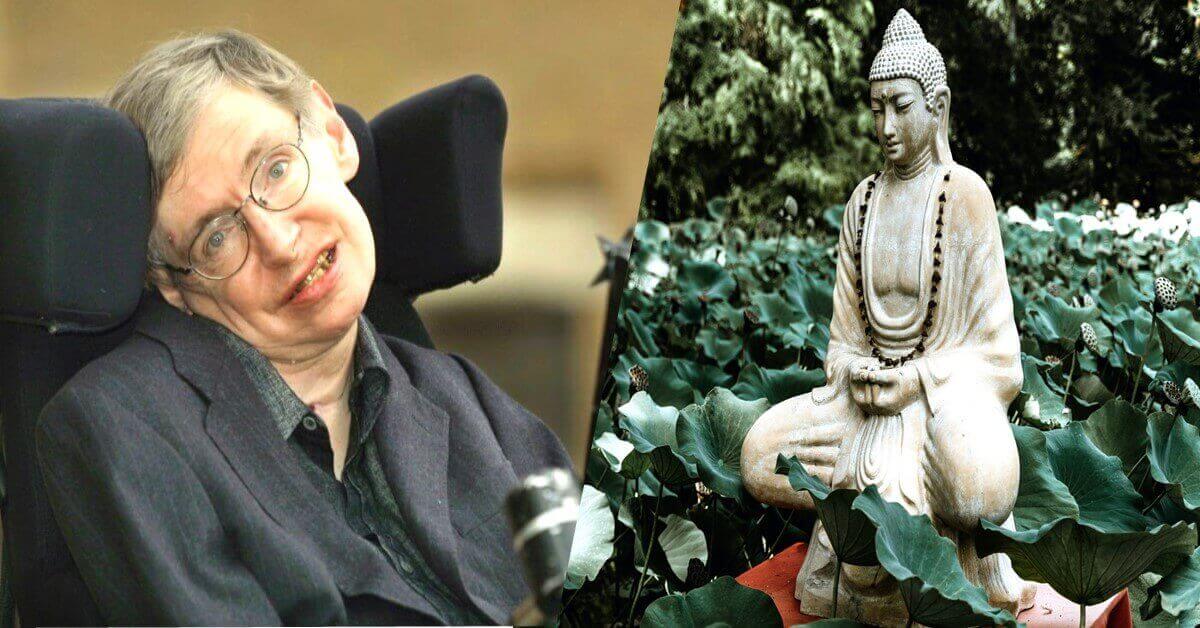Last updated on January 13th, 2024 at 08:41 am
Stephen Hawking on God answered the question, “Why don’t you believe in God?”, that “A physicist cannot allow his calculation to be muddled with belief in a supernatural Creator”.
The 21-year-old Stephen Hawking was unable to escape one of the most pressing questions of the human mind, says Jane Wilde, the girlfriend of Stephen Hawking, at the family dinner table, in 1963.
His views on religion and life are certainly enlightening for some. The man of invincibility died today, 14 March 2018. In this article, we explore the views of renowned physicist Stephen Hawking on the existence of God and his own invincibility. We examine his opinions on religion, science, and the nature of the universe, as well as his personal experiences with physical disability and mortality.
Through his words and ideas, we gain insight into one of the most brilliant minds of our time and his unique perspective on the ultimate questions of human existence.
The above excerpt is taken from the 2014 biopic film The Theory Of Everything which was nominated for the Academy Award. Actor Eddie Redmayne won an Oscar for the role of Best Actor in 2014. The biopic was, in fact, based on the book Travelling to Infinity: My Life With Stephen by Jane Wilde, and about their separation in 1991.
It was so well made that after watching the film the actor said, “At times I thought he was me”.
Stephen Hawking’s Life
Born on January 8, 1942, just after the beginning of WWII in Oxford, England to Scottish mother Isobel and British father Frank Hawking, Stephen Hawking proudly speaks of being born on the exact 300th anniversary of another greatest physicist and astronomer Galileo Galilei.
He wrote in Black Holes and Baby Universes and Othe Essays, “I was born on 8 January 1942, exactly three hundred years after the death of Galileo. However, I estimate that about two hundred thousand other babies were also born that day. I don’t know whether any of them were later interested in astronomy. I was born in Oxford, even though my parents were living in London.
This was because Oxford was a good place to be born during the Second World War: the Germans had an agreement that they would not bomb Oxford and Cambridge, in return for the British not bombing Heidelberg and Gottingen.
It is a pity that this civilized sort of arrangement couldn’t have been extended to more cities”.
It later made him the emergence of second Albert Einstein as his demise on March 14, 2018, coincides with his birthday. Before going to Oxford they lived in Highgate and Isobel chose Oxford as a safer place for giving birth to the children, as London was being heavily bombed.

Defying their financial constrain, both of his parents managed to study in Oxford where Frank Hawking studied medicine and Isobel philosophy, politics, and finance. Subsequently, Frank Hawking perused his career as a tropical physician and Isobel in political activity.
According to Wikipedia, their financial hurdle was always there even after his father became the head of the division of phraseology at the National Institute for Medical Research in 1950. St. Albans, Hertfordshire, where they had to move, young Stephen began his high school in St. Albans High School for Girls only for a few months.
As his family could not afford the school fees for Westminster School, where his father wanted him to enrol, they opted for a scholarship, but because of young Stephen’s down with illness at 13 years of his age on the examination day he had to stay at St. Albans.

There he was able to have a bunch of close friends with whom he would enjoy playing a board game together. Despite having been not showing much academic excellence or brilliance, he was nicknamed ‘Einstein’ by his friends. He already knew about Einstein. Being a bookworm he developed a strong sense of curiosity from his early age and developed a considerable level of scientific interest inspired by Tahta, the math teacher.
About his passion for knowing he said, ” I always wanted to know how everything worked, I would take things apart to see how they worked”, to the magazine Omni.
The only subject he found interesting was cosmology because it deals with big questions e.g. ‘Where did the universe come from?’ he said.
His aim was simply to understand the universe completely and to know “why it is as it is and why it exists at all”. He was so determined and focused on his passion which is unlocking the ‘secret of the universe’ that he ‘tried to lead a normal life best possible way not thinking about his condition and not regretting the things it prevented him from doing, which are not that many’ (The Telegraph).
Regardless of the fact that his father’s advice in medicine and his expectation of studying mathematics at University College, Oxford saw no light because it was not possible to study mathematics and on the other hand he did not want to go with medicine and had to study chemistry after all.
Starting his university education in 1959 in physics and natural science at the University College of Oxford, Hawking was able to work merely 1,000 hours in his entire undergraduate period because of his clumsiness.
This habit of unappreciative study caused him to face challenges before graduation and was called for an oral examination, and border-lined between a First and Second class. As a prerequisite to pursue a doctoral at Cambridge University a First-class was a must. He threatened the board saying ‘won’t leave Oxford’ if he is given a Second and can study in Cambridge with a First class, and as a result, he was given a First class in 1963.
I am not afraid of death, I am not in a hurry to die. I have so much I want to do first.
Stephen Hawking
After being graduated with First-class honours from University College, Oxford, Hawking began his doctoral at Cambridge University with Cosmology.
Shortly after his 21st birthday Hawking was diagnosed with Amyotrophic Lateral Sclerosis, known as motor neuron disease which destroys muscle reflexes gradually leaving the brain intact.
The great depression and a sense of hopelessness grabbed him for some time as the doctors gave him only two years to live.
In the hospital, he witnessed a boy of 12 years die from leukaemia.
The interesting fact of The Theory Of Everything is that Jane, whom he met at a party, was always there to support Stephen giving him hope of survival, and approached him despite the fact that he had only two years to live, married him forgetting everything. “Found a purpose to live”, later he said.
According to The Guardian, he once said, ‘Although there was a cloud hanging over my future, I found, to my surprise, I was enjoying my life in the present than before. I began to make progress in my research’’.
However, Dr Stephen Hawking came into fame after the discovery of “Hawking Radiation” in 1974 starting with a mathematical approach by unifying Einstein’s theory of relativity with quantum mechanics with his fellow physicist, and mathematician Roger Penrose in 1970. In four years he worked on black holes and discovered that the Black Holes are not black as they are painted and suggested that space-time would begin with the Big Bang and end in black holes.
He discovered that black holes emit radiation from the subatomic process at their boundary and potentially disappear. For the normal ones the process of not fast, but close to the end of their lives mini black holes emit heat at an enormous rate that eventually explodes with the energy of a million one-trillion hydrogen bombs, Hawking said.
In the seventh chapter of his book, A Brief History Of Time Hawking narrates: “If a black hole has entropy, then it ought also to have a temperature. But a body with a particular temperature must emit radiation at a certain rate. “
“It is a matter of common experience that if one heats up a poker in a fire it glows red hot and emits radiation, but bodies at lower temperatures emit radiation too; one just does not normally notice it because the amount is fairly normal. This radiation is required in order to prevent violation of the second law. So black holes ought to emit radiation’’.
The proposal of Dr Stephen Hawking that ‘black holes emit radiation’ is one of the most heated debates in the history of cosmology. “They are not eternal prisons they were once thought. Things can get out of a black hole, both to the outside, and possibly, to another universe. So, if you feel you are in a black hole, don’t give up. There’s a way out’’-to quote the Washington Post.
However, Stephen Hawking’s quest for a “theory of everything” led to the string theory. He was looking for a single theory that would explain all the forces in the universe.
In the concluding chapter of A Brief History Of Time, he went on to say,-

“If we do discover a complete theory, it would in time be understandable in broad principle by everyone, not just a few scientists. Then we shall all, philosophers, scientists, and just ordinary people be able to take part in the discussion of the question of why is it that we and the universe exist. If we find an answer to that, it would be the ultimate triumph of human reason-for then we would be able to know the mind of God”.
Hawking’s discoveries led him to be elected as a fellow of the Royal Society when he was just 32 years of his age in 1974 and one of the youngest to become a fellow.
And five years later, in 1979, he became the Lucasian professor, a position once held by Sir Isaac Newton, of mathematics at the University of Cambridge.
During his visit to CERN, Geneva in Switzerland in 1985, he was rushed to the hospital. He had contracted pneumonia and was on life support. He was so ill that there was no hope of survival and doctors asked Jane Hawking if they would withdraw the life-support but she refused and told them that he must live. He lived again but at the cost of his voice through a tracheostomy. It was another blow to his life making him a man with nothing but determination.
It was 1982, the year of his award of Commander of the Order of the British Empire, which still did not change his financial prospect of the family.
Therefore, he was becoming worried as his children were growing up regarding their school tuition fees.
There, then, he found a reason to pen a book not only to share the excitement of his discoveries with people but only to earn money to pay for his children’s education.
History of the A Brief History Of Time began to take shape as a result. It was finally published in April 1988 making it the Sunday Times best-seller for 237 weeks. It sold 10 million copies in 40 different languages around the world which also happens to be one of the most complex and unread books ever to appeal to the general public. Yes, the book brought him wealth and fame making him a greater celebrity scientist and a disabled hero. To the media and public psyche, he is now “Master of the Universe”.
It garnered him five more honours except for the Nobel Prize while he declined the Knighthood. ‘The Nobel Prize is given only for theoretical works that have been confirmed by observation.
It is very difficult to observe the things I have worked on,’’ said Stephen Hawking (The NY Times).
Probing the medical probability of his death wrong, Stephen Hawking lived five decades longer. In his memoir, Professor Hawking says, “At the time, I thought my life was over and that I would never realise the potential I felt I had. But now 50 years later, I can be quietly satisfied with my life”. In 1986 he received an “Equaliser’’ from Walter Woltosz, CEO of World Plus. He can now communicate by simply pressing with his fingers by selecting words to form sentences from 2,5000 plus words recorded in the speech synthesiser which is attached to the wheelchair.
Able to communicate 15 words a minute Stephen Hawking found it better than voice. However, Jane Hawking did not like it because of its American English Accent.
Jane’s inability to cope up with Stephen’s celebrity life, his contradictory view about Christianity, her perusing of Ph.D. in poetry, his worsening disability, his growing demand for Jane, and his refusal to discuss his debilitating illness were the contributing factors of parting their ways in 1991.
After all, she found solace in Jonathan, the musician from the Church, who also grew mutual feelings for her. Regarding women, Hawking opined, “Women. They are a complete mystery”.
For the necessity for around-the-clock care for Stephen, the National Health Service appointed nurses on an eight-hour basis.
One of them was Elaine Mason, previously the wife of David Mason who attached the synthesiser to his wheelchair. Hawking married her four years later in 1995.
But allegations spread that she might have harassed Stephen, an allegation he refused to accept to cooperate with the police. Nevertheless, they separated after 11 years in 2006.
Because of his courage and persistence, Stephen Hawking became the greatest scientist of history, one of the greatest 100 Britons, became hope to many hopeless, a hero to emulate and a disabled legend. Many of the current generations looked up to him to dream the impossible, to do the undone. Because of the extraordinary power of purposefulness, he escaped the inevitable fate of death and lived for more than five decades.
It is not easy at all to find the purpose of living and celebrate life with whatever we have for survival. Hope is something very expensive for which we have to pay a high price. But sometimes hope is just the way professor hawking describes it ‘while there is life there is hope.
Regarding death, he said, “I am not afraid of death, I am not in q hurry to die. I have so much I want to do first’’. “While there is life there is hope”, writes Hawking.
While there is life there is hope.
Stephen Hawking
The sad part of fanaticism and irrationalism is that they tent to clarify, judge and justify everything through the criterion of religion which science can never prove to exist. “The difference between science and religion is that religion is based on authority while science is based on observations and reasons”, said Stephen Hawking.
We are not qualified to judge one’s spiritual state, let the Creator alone, if there is one, decide what we secure in our lot. On humanity, Professor Hawking says that we are all different but share the same human spirit, perhaps it’s human nature that we adapt and survive.
Regardless of one’s religious belief anyone can do great things and become an imitable life. Our good work and aspiration to become great should not be certified by religious precepts.
What did Stephen Hawking say about God?
(The following citations are taken from Stephen W. Hawking’s books: The Theory of Everything, A Brief History of Time, Black Holes and Baby Universes, and the Brief Answers to the Big Questions. )
A Brief History of Time
In A Brief History of Time he wrote, “So long as the universe had a beginning, we could suppose it had a creator. But if the universe is really completely self-contained, having no boundary or edge, it would have neither beginning nor end: it would simply be… or “the universe is neither created nor destroyed: it just is,” he says in Black Holes and Baby Universes and Other Essays.
Brief Answers to the Bid Questions
In his book Brief Answers to the Big Question he says, “When people ask me if a god created the universe, I tell them that the question itself makes no sense.
Time didn’t exist before the Big Bang so there is no time for God to make the universe in”. There is a fundamental difference between religion, which is based on authority, and science, which is based on observation and reason. He regarded God as nature or the laws of nature as god, “If you believe in science like I do, you believe that there are certain laws that are always obeyed. If you like, you can say the laws are the work of God, but that is more a definition of God than a proof of his existence, but it wouldn’t be a personal God that you would meet and put questions to.”
I use the word “God” in an impersonal sense, like Einstein did, for the laws of nature, so knowing the mind of God is knowing the laws of nature”.) “We can use the laws of nature to address the very origins of the universe, and discover if the existence of God is the only way to explain it.”
Black Holes and Baby Universe
He believed that the universe is neither created nor destroyed: it just is. (Black Holes and Baby Universes and Other Essays).
To speak about the beginning of the universe he wrote in The Theory of Everything, “According to a number of early cosmologies in the Jewish/Christian/Muslim tradition, the universe started at a finite and not very distant time in the past.
One argument for such a beginning was the feeling that it was necessary to have a first cause to explain the existence of the universe.
I think the universe was spontaneously created out of nothing, according to the laws of science. These laws may, or may not, have been decreed by God, but he cannot intervene to break the laws, or they would not be laws.”
We are all different but share the same human spirit, perhaps its human nature that we adapt and survive.
Stephen Hawking
However, he does not advocate to people what they should believe, but instead, he tells what he believes as an astrophysicist, as he says, “I have no desire to tell anyone what to believe, but for me asking if God exists is a valid question for science. After all, it is hard to think of a more important, or fundamental, mystery than what, or who, created and controls the universe”. (Brief Answers to the Big Questions, pg. 35.)

He fears one day the aliens will fill the earth and once they do the catastrophe will be tantamount to Columbus discovering America and the consequence was indeed not satisfactory for the Native Americans.
Moreover, in a world that is plagued with political chaos, and environmental disaster, how can the human race sustain another thousand years?’ he asks.
With the demise of the greatest, physicist, geologist, brilliant mind and author at 76, the world has lost its greatest benefactor whose void can never be filled again. He will always be a ‘Stephen Hawking inspiration’ for the present and the generations to come. Stephen Hawking passes away at 76 on 14 March 2018.
Regardless of one’s religious belief anyone can do great things and become an imitable life. Our good work and aspiration to become great should not be certified by religious precepts.






